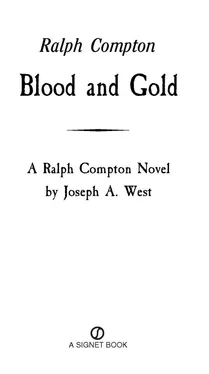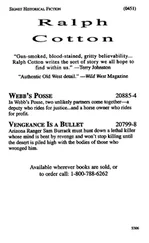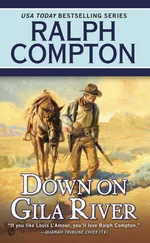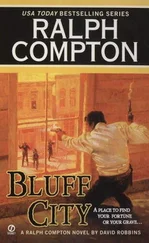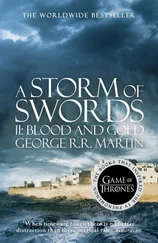Embarrassed, I gave all my attention to my plate and Jacob laughed. “Dusty, better let Jen do as she pleases. She’s forever nursing wounded critters back to health.”
The air had cleared between us and Jen watched me with growing concern until I’d eaten my fill, sighed and pushed away from the table.
“That was an elegant meal, ma’am,” I told her. “The first woman’s cooking I’ve tasted in many a month.”
Jen was looking at my wound intently, and to head her off, I dug into my shirt pocket, found my makings and asked: “May I beg your indulgence, ma’am?”
The woman nodded. “Please do. Jacob smokes a pipe and I’m well used to men and their need for tobacco.”
Jacob stepped to the wood mantel above the fireplace and returned with a charred, battered pipe, which he proceeded to light.
I’d hoped our smoking would forestall his wife’s attentions, but it was not to be. Jen left the table and came back with a pan of water and a cloth and began to bathe my wound.
Only now, as his wife fussed and fretted over me, did I mention to Jacob Lawson that I’d first taken Jen and him for Indians.
The big bearded man took that in stride. “Jen and me, our plan is to follow the way of the Indian and live as he does. That is why we dress as we do. Eventually, we hope to attract others to our valley who feel the same as we do.”
As Jen dabbed at my head, she said: “We wish to put away our guns and live as a community in perfect peace, love and harmony. When the Apaches came, Jacob tried to speak to them in friendship, but their only reply was a volley of gunfire that drove us into the cabin.”
“They nearly done for us,” Jacob said. “It was that close.”
I nodded. “When the Apaches are on the war trail, as a general rule they ain’t long on polite conversation.”
“But even this won’t deter us,” Jen said, dabbing at my head with something that stung. “Our vision is to see this valley populated by hundreds of kindred spirits who wish to live as nature intended, close to the earth in the way of the native Red Man.”
“It’s a good way, Jen,” I said, “but mighty hard. In the old days when an Indian ate, he filled his belly to bursting because he had no way of knowing when he’d eat again. In winter, when game and fuel were scarce, all the tribes suffered from hunger and cold. Even in good years a lot of them died, especially the old and the younkers like your little girl there.
“Now the buffalo are gone, things are even worse. To survive a bad winter, the Indian needs fat. The buffalo had plenty of fat, especially in his hump where he stored it, and in good years when the herds didn’t drift too far south, that rich hump meat was easy to come by. Now the Sioux and the Cheyenne and the others must depend on antelope and deer and rabbit, and there’s little fat on any of them. If they don’t get government beef, and many of the wilder ones don’t, they can fill their bellies with deer and jackrabbit in winter and still starve to death.”
I rolled another smoke, thumbed a match into flame and lit it. “Like I said, it’s a good way, but it’s not an easy way.”
“We’ll teach the others who come to farm,” Jen said. “Then our community need not depend on game to see us through the hard winters.”
I dearly wanted to tell this starry-eyed pair that there was more to the Indian way than dressing up in beads and feathers and preaching peace and love. But I knew that nothing I could say would change their minds.
The Indian wasn’t much on peace to begin with. Any warrior worth his salt would ride two hundred miles out of his way to get into a good fight, and as for love, well, maybe they loved their own tribe but outside of that everyone else was considered a potential enemy and treated as such.
Jen finished fussing over me and I touched the wound on my scalp. The dry blood was gone and the clean sting from the stuff she’d put on it felt good.
Outside the day was shading into night, and though I would dearly love to have taken up their offer of a bed for the night, I had to be on my way if I’d any hope of closing the distance between me and Lafe Wingo.
I rose from the table, thanked Jen again for her food and shrugged into my slicker. I’d left my horse at their barn where Jacob had given him a bait of corn, saddled him again and led him back to the cabin. As Jen and Jacob stepped outside I swung into the saddle.
“We whipped those Apaches pretty good today,” I said, “but be sure of it, they’ll come back for their dead. My advice is to stay in the cabin and keep your rifles close. The Apaches will hit and run, but they’re mighty notional and they might just take it into their heads to renew the fight.”
Jacob motioned to me with his pipe. “Thank you for all you did for us, Dusty,” he said. “You saved our bacon and that’s for sure.”
“Glad I could help,” I said, uncomfortable with his thanks.
“Come back and see us.” Jen’s white smile was bright. “And maybe next time you can stay a while and help us teach others the way.”
“Till then,” I said, touching my hat, knowing full well that I’d never visit this canyon again.
I swung the black around and cantered up the slope. The wounded Indian was gone from the rocks as I expected he would be and so were the bodies of the dead.
In this world no man stands alone, and others he meets leave their mark on him, no matter how passing or slight, adding in varying degree to the sum of his knowledge. Jen and Jacob Lawson were dreamers, but in their strange way they had shone a bright torch on the path I intended to take.
Soon I would wed pretty Sally Coleman and live with her happily ever after in a snug cabin of our own. I told myself love and peace we would have aplenty and there would be only a looking forward at happy events to come and not a single backward glance at what had passed before.
All this I thought as I rode under a wild, broken sky, the rain hammering at my face, the wind flapping the wet slicker around my legs.
That the wind blew unnaturally chill I did not notice, though I should have. There was a sharp, cold edge to its thin whisper that sighed of sundry perils to come.
But me, being young and in love, paid it no mind.
Chapter 8
I reached the Prairie Dog Town fork of the Red an hour before midnight and across the river lamps were still lit among the sprawling cabins, general store, hotel, cattle pens and corrals of Doan’s Crossing.
The Red at this point was very wide, but mostly a series of broad sandbanks with only runnels of shallow water flowing sluggishly between them.
Though he was tired, the big black stepped across easily and I rode him into the settlement in a teeming rain.
That summer of 1880, Doan’s Crossing was crowded with people, the Apache menace to the west and south bringing in punchers, ranchers, a few blanket Indians, soldiers, buffalo hunters, peddlers and itinerant preachers.
Jonathan Doan’s general store, where there was a bar, was doing a brisk business and through the glass doors of the two-story hotel, men were constantly coming and going.
I had no desire for whiskey, but what I did need were supplies and news of Lafe Wingo and the Owens brothers.
Doan’s nephew Corwin operated the livery store, and when I rode in, he recognized me, even though I was just one among the scores of punchers who had driven three hundred thousand head through the crossing that spring.
“You’re late getting back, Dusty,” Doan said as he took my horse and led him to a vacant stall.
Maybe Corwin Doan remembering me shouldn’t have come as a surprise. He kept a record of every cow that crossed the Red at his place, the names of the trail bosses and who owned the herds. Simon Prather was one of the spring regulars, but the biggest herds by far were from the King Ranch, thirty thousand head every season.
Читать дальше
